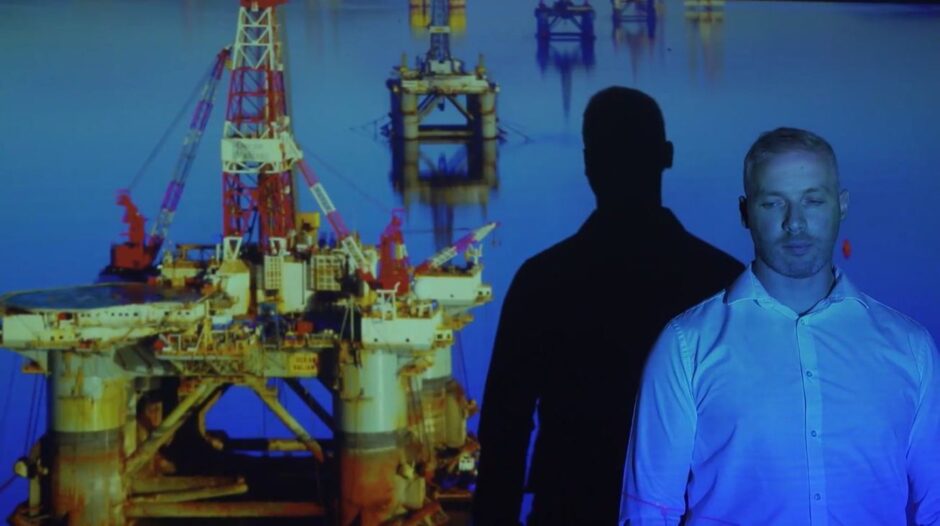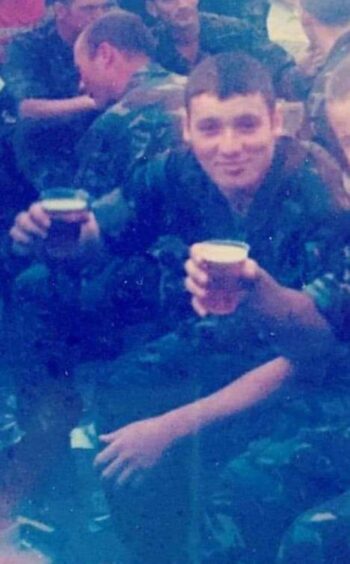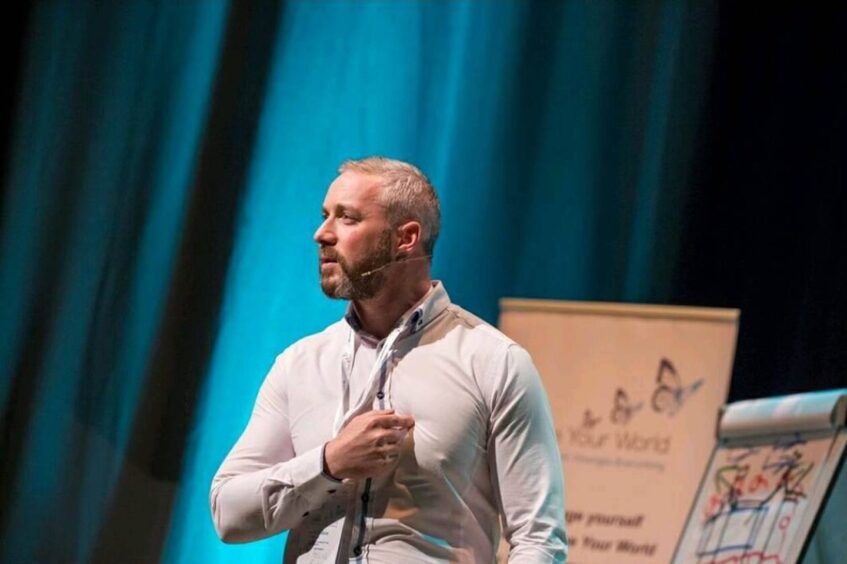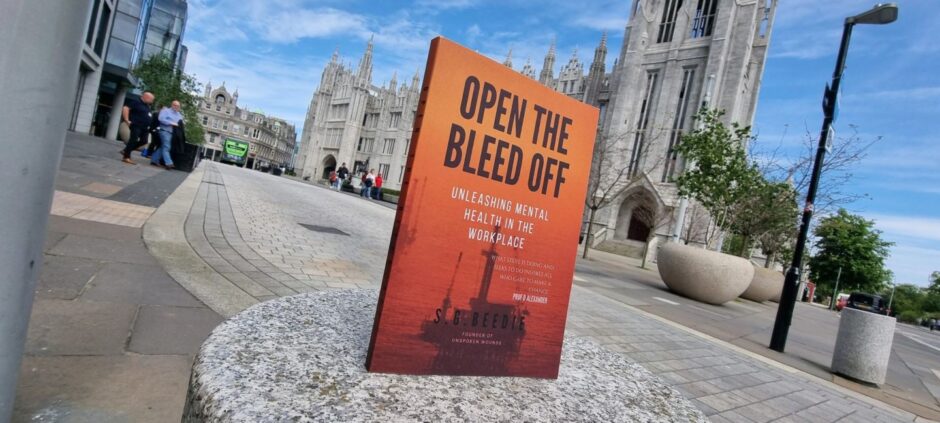
Mental health is increasingly important when it comes to the energy sector’s approach to the health and safety of the workforce, but, there is still a long way to go.
The UK’s Health and Safety Executive (HSE) has the power to issue notices to firms regarding workplaces or cultures that cause harm to mental health offshore.
However, law firm Brodies told Energy Voice earlier this year that it had found no record of the HSE ever serving a notice relating to mental well-being.
Mental health is a difficult area for the HSE to address and enforce. First of all, the watchdog needs to identify that the cause of any mental health issues originates entirely from the workplace or its culture and not due to personal issues
Nevertheless, the numbers don’t lie. The International Association of Drilling Contractors (IADC) highlighted this last year when it revealed that 40% of onshore and offshore remote rotational shift workers experienced suicidal thoughts some or all of the time while on duty.
The shocking statistics resulted in the formation of the Mental Health Charter which 35 North Sea organisations joined by the end of last year. This shows that the dial is shifting.
Widespread industry support for the initiative showed the dial is shifting.
But the tragic suicide of an offshore worker prompted his friend and colleague to take matters into his own hands to help ease the pressures which cause so much anguish for many who work in the physically and mentally challenging conditions in the North Sea.
Seeing ‘patterns’ in mental health issues across the armed forces and the offshore workforce
Steve Beedie is on the front lines of the battle to protect offshore worker mental health.
A former soldier and current member of the offshore workforce, he has battled with his own mental-wellbeing and has seen the impact mental health issues can have on those suffering.
Mr Beedie’s own battle with poor mental health started to take its toll after leaving the forces.
He couldn’t find the support he needed and turned to a destructive lifestyle to handle his – at the time undiagnosed – post-traumatic stress disorder (PTSD).
“I spent nine years in the British Army and I did four tours of duty,” He explained.
“When I came home, I was a very unwell young man and I didn’t know the words depression or PTSD.
“I got no help, so I was medically discharged and came home to no job, nothing, not knowing what the f**k I was going to do.
“I quickly realised I was in a very, very bad way.”
In a conversation with Energy Voice, Mr Beedie opened up about “getting into a lot of trouble and drinking” while he had a three-month-old son at home.
After waking up in a jail cell in Durham after what he described as a “really bad event”, Mr Beedie said “I can’t live like this” as he began to come to terms with depression and what it meant to him.
Mr Beedie explains that after this incident he “gave up drinking booze and started drinking books.”
In the pages of these books, the former soldier discovered the work of ancient philosophers and modern-day mental health practitioners that enabled him to grasp the severity of his situation.
‘There’s no one available’
Mental health services are offered to those who need them. However, a lack of education or awareness on the subject means some don’t realise that the help is there.
In some cases they may not understand that they are in need of any support at all.
When Mr Beedie did reach out for help, a clinical psychiatric nurse (CPN) visited him in his home. However, this did not provide the support he needed.
“I told her about five minutes of my story of why I landed there, and I had to help her, she was bursting out crying, she was in tears and couldn’t handle the situation.
“So, the evidence I was getting was ‘there’s no one available.’
“Doctors just gave me prescriptions, there was no help.”
Having set out on his journey to recovery and a better mental state, Mr Beedie has turned his hand to public speaking and social media to offer some support for those who find themselves in a similar situation to the one he was in.
He offers help to a range of people with mental health issues, including others from the armed forces, through his “Unspoken Wounds” platform.
The “Unspoken Wounds” website is an online platform that allows people to discuss their struggles with mental health issues. Mr Beedie’s social media presence reaches “millions every year.”
And now he has turned his attention to books.
From ‘drinking books’ to writing them
Having come to terms with his mental health issues and working to manage them, Mr Beedie began working in the offshore oil and gas industry more than ten years ago.
He now serves as a derrickman all over the globe.
When he first started working in the energy sector things were looking up for him. But it was then he saw some of the same dynamics which he experienced in war zones taking place offshore.
“When you’ve been doing something for a while, you start seeing patterns,” he explained.
“So, I was offshore years ago and I was like, the mood has shifted, things aren’t like what they used to be, the men aren’t happy.”
He was seeing his colleagues get “agitated” as some went through divorces when work stresses began to impact home lives.
“And then we started hearing about suicides at home, guys getting paid off and taking their lives.”
Losing a friend
Having seen this before while in the army, Mr Beedie thought “I know what’s happening.”
“The stresses of modern-day life are getting higher and higher, so the industry was wanting more, paying them either the same or less and the pressure was on.”
This came to a head when Mr Beedie’s friend and colleague took his own life.
His friend committed suicide on the rig he was working on. It was, this tragic event that served as “the catalyst” for Mr Beedie to write his book.
“An idea can feel good, like the inspiration can feel good but when it’s real life, when your friend commits suicide on a rig, then I’m speaking to his daughters and his wife, it’s bad enough when it’s ex-forces, I’m trying to help that but now it’s happening offshore.”
The former soldier said that following the passing of his friend there was “nothing getting done” to alleviate the clear and present issue of mental illness among the offshore community.
He explained that he “wanted to do something but didn’t know if I had the right voice”.
Opening the bleed off
Then one day, inspiration struck. It was while carrying out his duties offshore that he realised the way a rig works could teach workers how to treat their mental wellbeing.
“We were drilling a well and, like always when you’re making a drilling connection, you have to open the bleed off, so you have to release the pressure from the drilling package.
“The driller was like ‘Stevie go open the bleed off’… I went over to the valve and I cracked it open and you hear the pressure and the idea just popped in.
“That’s it! If I can get the lads to open the bleed off and release the pressure.”
He explained that “it’s not a cure” but the idea of sharing personal problems will relieve some of the pressure a person may be putting on themselves by bottling it up.
This philosophy gave Mr Beedie’s book its name “Open the Bleed Off: Unleashing Mental Health in the Workplace.”
Across its 208 pages, the book dives into Mr Beedie’s personal experiences and his work with leading experts such as Robert Gordon University’s Professor David Alexander, director of the Aberdeen Centre for Trauma Research.
“It’s not a perfectly written book, I wish I had an editor to make it beautifully perfect but the message inside is that speaking is healing,” he confided.
He pointed to his mouth and said, “the bleed off is this, releasing that pressure is to speak, not to fix it, not to find a solution, not to cure it, because you can’t.
“It is a flocculating part of life, you have good days, you have bad days, you have phenomenal days and you have extraordinarily difficult times.”
He explained that opening the bleed off is a system to prevent workers from gambling, taking drugs, drinking too much, fighting or quitting their jobs out of frustration.
The offshore worker and former soldier’s book can now be found in paperback and e-book format on Amazon.
 © Supplied by Steve Beedie
© Supplied by Steve Beedie © Supplied by Allister Thomas
© Supplied by Allister Thomas © Supplied by Steve Beedie
© Supplied by Steve Beedie